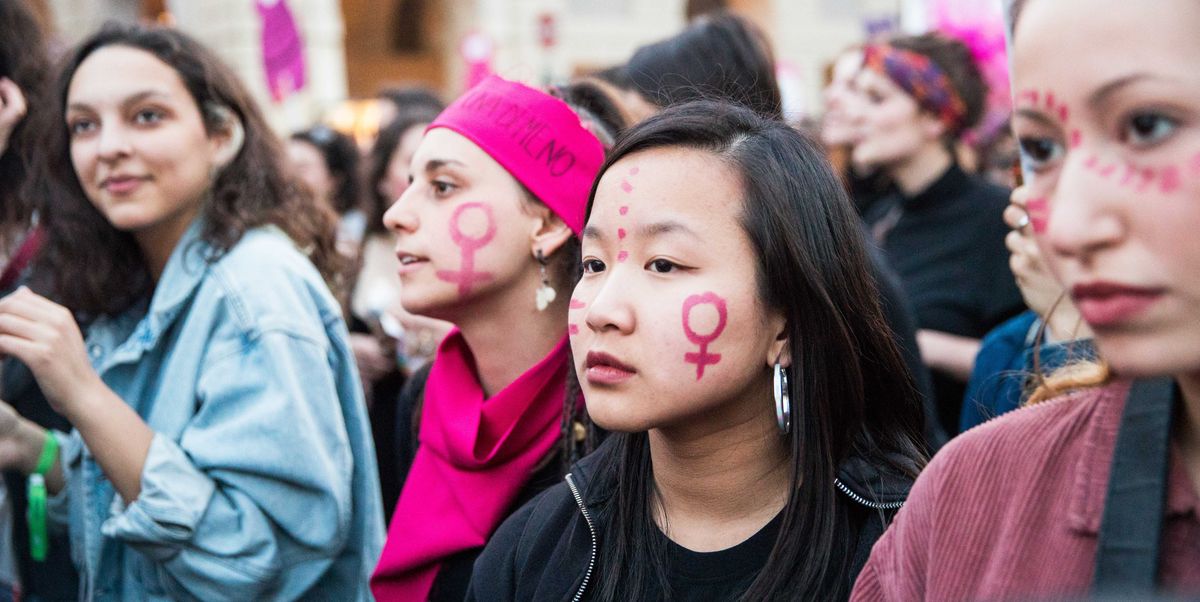One year into the pandemic, its effects are threatening to undo decades of investment in girls’ and women’s access to education, economic opportunity, and safety. The facts are dire: The crisis has led to an increase in domestic violence; the gender poverty gap will likely worsen, as more women than men have lost work during the last year and a larger proportion of women than men slip into poverty; and around the world, 20 million girls could drop out of school by the end of the pandemic.
As we rebuild in the months and years ahead, the question I keep returning to is how we rebuild and create a world with a stronger foundation— one that is more equitable for girls. It starts with taking the power of girls and young women seriously.
We know that elevating girls is one of the best investments in our collective future. It’s a driver of economic growth and crucial to the well-being of communities. Their education is also one of the most cost-effective strategies to tackle climate change. It seems obvious. Yet culturally, we treat girls and their interests as frivolous, not yet fully-formed and so not yet worthy of being taken seriously. At best, “girl power” is an aesthetic or brand slogan, not an ethos or value embodied by our society. Even our best efforts to invest in girls culturally are framed only in their future potential, not their current power. But can’t both be true?
Girls are global tastemakers and the drivers behind pop culture. They’re an economic force. And they are our political future. Across the world, they’ve emerged again and again as leaders in movements and moments that define our collective political future: Amanda Gorman, a young Black woman, speaking for the soul of America at inauguration; Malala Yousafzai, literally putting her life on the line while fighting for girls’ education; Greta Thunberg, a teenage girl who’s battled presidents while advocating for safeguarding our planet for future generations; Emma Gonzalez, a singular, clear voice speaking truth to power about the costs of gun violence. The list goes on.
These girls have taken on oppressive and authoritarian forces, shaped global movements to invest in everyone’s future, and rallied millions behind causes. But still, we remain surprised, constantly and consistently, by the power of girls and young women. Each one of these leaders chips away at a glass ceiling we keep reinforcing because of our inability to expect that girls have important things to say. Instead, we treat these girls as exceptional, constantly surprised by their power.
It seems strange to have to list reasons why girls are collectively powerful and how they contribute to our economy and culture. Isn’t their humanity enough? Should we not just value them and invest in them because they’re citizens of our communities?
But our world was built by and for men, with a global economy centered primarily on the West. These systems are set up to make girls small and silent, whether they’re from Missouri or Mombasa. The list of ways in which they are collectively and systemically disempowered or oppressed is built into the architecture of our cultures. We all know the list of horrors girls around the world face, from being kept out of school or married as children or trafficked. But girls aren’t only silenced and shamed in those worst-case scenarios. Shame and stigma are a fact of life for girls everywhere. There are millions of “missing girls” in India and China because female fetuses are sometimes aborted where boys are preferred. Girls are neglected because families give more attention and resources to boys. And across the globe, girls are still defined by expectations for them to grow up into good wives and mothers.
It’s overwhelming when you start thinking about the ways in which our world isn’t built for girls. Our streets aren’t safe for girls. The night isn’t safe for girls. Even the internet isn’t safe for girls. There are no spaces where they can exist and where their voices are valued and amplified. We just accept the fact that the world isn’t made for girls, that they are collectively, systemically disempowered and oppressed. So we teach them how to fight back against horror instead of holding perpetrators of violence accountable. Instead of handing girls the reins to reshape our world into a more equitable one.
But if men and boys are shaping the narrative of what our world looks like; if men are the ones with the power to dismantle and rebuild systems; if men are still the norm for who gets a seat at the table and who has a say in describing our reality, then how will we ever build an equitable world for girls? Surely, the first step is to start by taking girls seriously. By hearing what they have to say. By understanding that their words and opinions and voices have value.
Instead of just imagining a future where girls have a seat at the table, let’s hand girls the mic to shape the future.
This content is created and maintained by a third party, and imported onto this page to help users provide their email addresses. You may be able to find more information about this and similar content at piano.io

